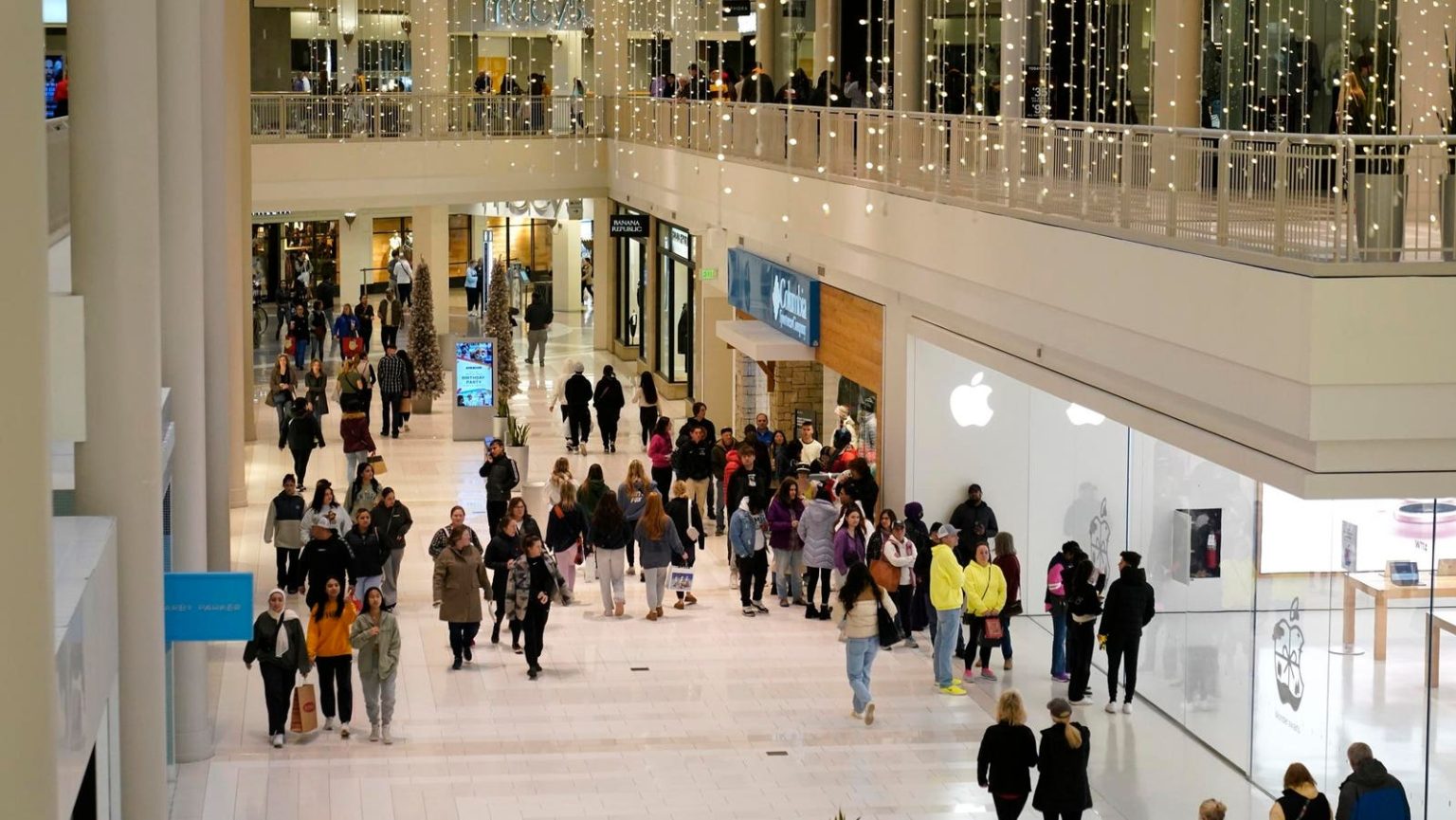This holiday season, Americans are planning to shop like it’s 2019, according to a consumer survey released today by ICSC.
ICSC, the trade group representing the real estate side of the retail industry – the owners of shopping centers, malls, and other retail marketplaces – is reporting that 92% of consumers surveyed plan to shop in a physical store during the holiday season, up from 87% last year.
That is the highest percentage of consumers planning to shop in-person that the ICSC surveys have seen since 2019.
Tom McGee, ICSC president and CEO, views that jump not simply as a sign that pandemic fears have faded, but also as evidence of the growing synergy between in-store and online shopping.
“The lines have really begun to blur between online and physical shopping,” McGee said in an interview. “Stores are increasingly not used just for traditional shopping. They’re mini fulfillment centers. They’re an opportunity to build a relationship with your customer as well as sell goods,” he said.
As more retailers see that consumers want both a physical and online shopping opportunity, and create ways for both channels to work together, one of the biggest challenges facing the retail real estate industry is that demand for store space is greater than the supply, McGee said.
While “you can always identify particular properties that may buck this trend,” McGee said, “the biggest trend that we’re seeing is, first of all, vacancies are at historic lows, occupancies are at historic highs, and the demand for physical space, particularly in open air retail – particularly in that grocery-anchored, power center, Target, Walmart, Costco-anchored shopping center – is an excess of demand.”
“The competition for physical space, particularly well-positioned physical space, has never been more competitive than it is right now,” he said.
ICSC kicked off the year by declaring 2024 the “year of the store”, saying omnichannel initiatives have reached the point where the integral role the store plays is fully being recognized.
“The store is the central point. It’s how you build credibility, it’s how you build relationships,” McGee said. “The store is your opportunity to demonstrate how you can differentiate yourself with your customer,” he said. “Increasingly, you’re finding those retailers that are really effective at merchandising both in the store and online, and complementing each other and making that experience really frictionless, are the ones that are winning.”
At the end of last year. ICSC released a report on the halo effect physical stores have on online shopping, showing that opening a store boosted online sales in the surrounding trade area by an average of 6.9% in the first weeks the store was open.
For emerging, direct-to-consumer brands the impact was even more dramatic, according to the ICSC report. DTC brands saw an average boost of 13.9% in online sales after opening a store. Closing stores were found to have a negative impact on online sales, with sales dropping an average 11.5% in the trade area.
ICSC also issued its forecast for holiday sales growth this year today. It is projecting retail sales will grow 3.0 to 3.5% this year. It also is predicting a 6% increase in food and beverage sales, and a total spend for the season of $1.66 trillion.
Last year, ICSC predicted growth of 3.5% to 4.5%.
ICSC’s holiday growth forecast is in line with other predictions. The National Retail Federation yesterday released its forecast of 2.5% to 3.5% growth. Accounting firm Deloitte is predicting growth of 2.3% to 3.3%
Despite forecasting lower growth, McGee and ICSC are expecting a strong holiday season. “In the face of concerns around inflation – although those are moderating – you have a strong job market, and people are continuing to spend,” McGee said. “That’s really been the story over the course of the last number of years – that consumers continue to be very resilient despite real concerns about economic headwinds,” he said.
The survey found that 70% of holiday shoppers feel their financial situation is better than, or the same as last year.
Other findings from the ICSC survey are:
- Holiday shoppers plan to spend an average of $706 on holiday gifts and related items – the highest amount since 2018. Forty-two percent of those who said they planned to spend more this year cited higher prices as the reason.
- 241 million consumers – 6 million more than last year – or 92% of consumers, said they plan to shop, either online or in-store, or both.
- More than two-thirds of consumers (68%) said deals, promotions and exclusive offers will cause then to make more trips to physical stores.
- More than three-fourths (78%) of shoppers said they plan to start making holiday purchases earlier than usual, primarily due to deals and promotions.
- The first weeks of December are likely to be especially busy, with the number of shoppers who plan to complete their shopping then up 10%.
Read the full article here





